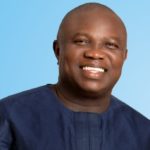It was hardly unexpected, yet it felt like a bombshell. Italy’s prime minister, Giuseppe Conte, announced his resignation on August 20th, putting an end to his government, an unlikely coalition between two populist parties: the anti-establishment Five-Star Movement (M5S) and the nationalist Northern League. The government’s collapse had been likely since Matteo Salvini, the League’s leader, withdrew his support for it earlier this month. Indeed, many had seen it as inevitable ever since the coalition was formed 14 months ago.
Mr Conte’s departure pitches Italy into a crisis from which there is no easily foreseeable way out. It could lead to the eurosceptic Mr Salvini achieving his goal of becoming prime minister; in withdrawing his support, he declared he wanted “full powers”. Alternatively, his party could be shut out of government altogether. It will now be up to the president, Sergio Mattarella, to sound out the parties as to whether a new parliamentary majority can be formed. If not, he will have to call an election.
Much is at stake. The League, which won 17% of the vote in the last election in 2018, has surged to around 37% in the polls. An election could lead to Italy getting its most uncompromisingly right-wing government since Mussolini. It would also leave the Italian legislature just weeks to frame its next budget, a task which normally requires the last three months of the year. This year, the outcome is especially crucial: Italy has promised the European Commission that if it fails to contain its budget deficit by other means, it will impose a whopping increase in VAT, which could entirely kill off the country’s feeble economic growth. Yet Mr Salvini has promised voters swingeing tax cuts.
Addressing the Senate, the upper house of the Italian parliament, Mr Conte said he was resigning solely because of Mr Salvini’s withdrawal of support. He accused him of “pursuing only personal interests”. And in a stinging rebuke, he turned to his deputy, sitting beside him on the government benches, and said: “We don’t need people and men with full powers, but [respect for the institutions] and a sense of responsibility.” Mr Conte also chided the League’s leader for failing to respond in parliament to accusations that his party had sought funding from Russia, through a complicated oil deal uncovered by the press in February.
Responding to Mr Conte’s speech, Mr Salvini, known to his followers as Il capitano (“the captain”), implicitly blamed the crisis on M5S. He accused the party of repeatedly holding up legislation on environmental and other grounds. “If this government has been interrupted it is because in parliament, in commission and in government, there were so many Mr Noes,” Mr Salvini said.
Both the resigning prime minister and his deputy used their speeches to stake out ground in the upcoming battle to form a new government, one in which Italy’s relationship to the European Union will be central. Mr Conte said that, while blind federalism was no answer to Europe’s problems, neither was a return to the insular nationalism of the past. In response, Mr Salvini took an unusually strong eurosceptical line. “We are the most beautiful and potentially richest nation in the world, and I am fed up with the fact that every decision has to depend on the signature of some European official,” he declared.
One possible way forward would be for the M5S to ally with the centre-left Democratic Party (PD) to form a new government. If they can persuade enough independent MPs to join, the two parties could enjoy majorities in both houses of parliament. Alternatively, they might lend support to a cabinet of non-partisan technocrats, like the one that governed the country from 2011-13. But the PD is deeply split over the idea of a “stop Salvini” alliance, though the party’s leader, Nicola Zingaretti, has gradually become less hostile to the idea.
Faced with the risk of losing power entirely, Mr Salvini offered the M5S an incentive to reverse course and stick with the current coalition. He promised to back their most treasured reform: a cut in the size of the legislature. But these are choppy waters for Il capitano, and just as choppy for the vessel he hopes to skipper.







Leave a comment